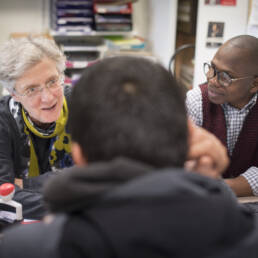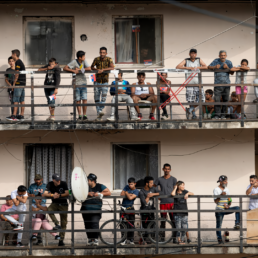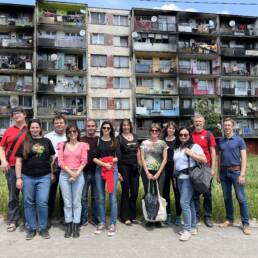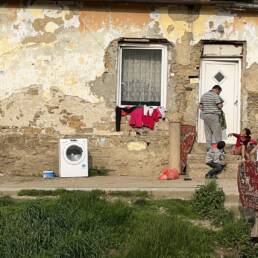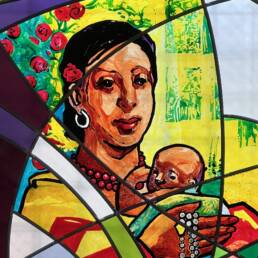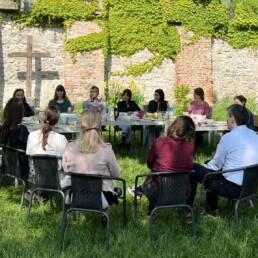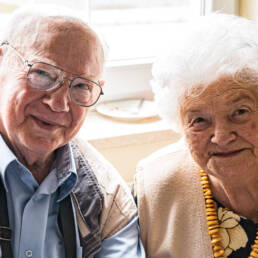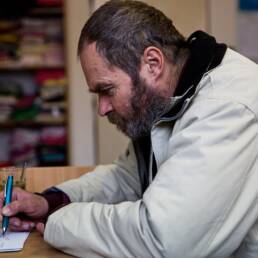Author
André Bonello
Head of Research and Advocacy Unit
Caritas Malta
According to the newly updated Caritas Malta MEBDL series report conducted by Prof. Suzanne Piscopo, Director of Caritas Malta Anthony Gatt and André Bonello, the yearly Basic basket had an increase of approximately 1,700 to 1,900 euro.
However, when one adds the expense of a privately-rented dwelling, this increases the cost of the basket significantly, resulting in Augmented baskets costing 17,900.07 for a household with elderly couple, 21,974.62 for a lone parent and two children, and 25,003.28 for a household with two adults and two children. The impact of the rental fee can dramatically affect the financial circumstances and quality of life of the low-income households.
The study calculates an ‘augmented basket’ of essentials for different sizes of families in its third Minimum Essential Budget for a Decent Living (MEBDL) series. The 2020 report was launched on 5 February, 2021 and follows previous editions in 2016 and 2012.
The findings are of utmost relevance to shed light on how to ensure a dignified life and social justice for all. Three different kinds of families are analysed based on interviews, expenditure diaries and consultation with experts. These are families, all receiving social benefits such as unemployment support and subsidised housing, are composed of:
- 2 adults and 2 children attending public primary/secondary school
- 1 adult and 2 children attending public primary/secondary school
- 2 adults over 65 years of age
Caritas Malta defines a basic basket of goods and services that these families should need to ensure healthy and adequate living conditions, rather than based on what families in vulnerable situations actually consume nowadays. The highest proportion of the total cost of the MEBDL basket is accounted by food, ranging from 41% to 51% for these three household types. The next highest cost proportionally is for the combined household goods and maintenance, laundry and care, and services, which ranges from 16% to 30%. With lower proportions one finds education, culture and gifts, representing from 6% to 12% of the basket. The other categories represent 8% or less of the cost of the basket.
The findings are the following. They do not compare directly with previous studies because the 2020 basic basket included a few more items than the previous ones such as a computer, smartphone, cultural activities, gifts and WiFi. Still the amounts of the 2016 study are displayed here as a reference.
| Type of family/MEBDL basic basket | 2020 | 2016 |
| 2 adults + 2 children | € 13,946.78 | € 11,446 |
| 1 adult + 2 children | € 11.038.12 | € 9,197 |
| 2 over 65 years old | € 8,156.57 | € 6,527 |
The MEBDL studies also propose an augmented basket, which adds enough budget for the different types of families to afford eating out once a month, using and maintaining a car and paying a 1-2 bedroom accommodation on commercial prices (rather than subsidised).
These are the yearly budgets for an ‘augmented basket’ in 2020 and compared to those of the same kind of basket in the 2016 study:
| Type of family/MEBDL augmented basket | 2020 | 2016 |
| 2 adults + 2 children | € 25,003.28 | € 15,609 |
| 1 adult + 2 children | € 21,974.62 | € 13,398 |
| 2 over 65 years old | € 17,900.07 | € 10,982 |
This is the comparison of the MEBDL 2020 basic and augmented baskets:
| Type of family/MEBDL 2020 basket type | basic | augmented |
| 2 adults + 2 children | € 13,946.78 | € 25,003.28 |
| 1 adult + 2 children | € 11,038.12 | € 21,974.62 |
| 2 over 65 years old | € 8,156.57 | € 17,900.07 |
Based on this rigorous and innovative study, Caritas Malta makes a number of policy recommendations that would be essential to help lift people out of poverty and truly support those in need with punctual and effective action. These are some of the recommendations from the study available for download here:
- Set up a task force to plan and develop a proposal for reviewing the COLA mechanism so that it reflects the true cost of living in contemporary times and all citizens have a minimum income to live decently in Malta.
- Start discussions at EU and national level to revise the 60% median NEI as the benchmark for defining at-risk-of-poverty by increasing it to at least 70% median NEI.
- Implement a ‘digital cash’ for low-income earners.
- Revise Housing Authority Schemes and Stamp Duties.
- Set up a multi-generational home sharing programme for the elderly and youth.
- Develop and fund an innovative programme where ‘tiny houses’ are built to create adequate living spaces in sustainable inclusive communities.
- Establish an official Identity Card with temporary address for people who are homeless in order to be able to apply for and access social and health services and benefits.
- Revise Scheme 9 of the National School Support Services so that eligible families with school aged children have the opportunity to apply for all three provided items daily school packed lunch, new uniform, one-time stationery grant.
I embarked this journey in 2015 and it has given me a unique opportunity to be closer to those who are in need by giving them a voice through the power of research. Prof Suzanne Piscopo is one of the co-authors who worked hard to make sure the voice of the unheard will be given all the attention needed for a better standard of living. I would like to thank all the experts and all those who participated in this study as without them this could not be possible. Lastly I would like to thank our PR Officer – Marica Cassar for her constant motivational support and all those working in Caritas Malta starting from our director Anthony Gatt for the dedication to help those who are in need.



